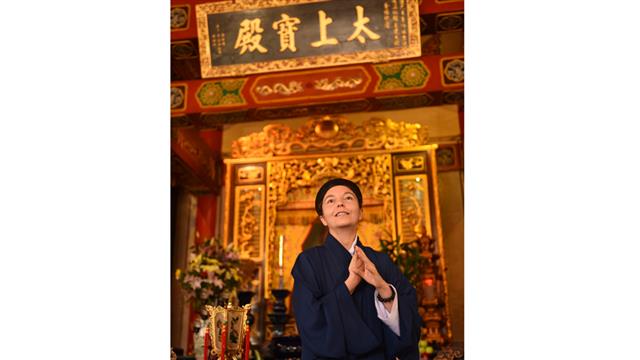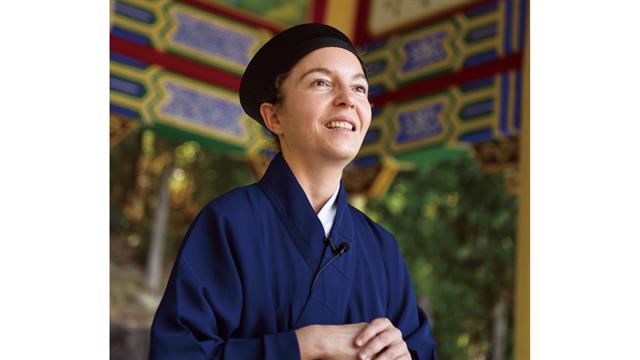What moved you into Taoism among religions? Why Taoism?
What I like about Taoism is that it focuses on two important aspects of life—the body and the mind. This distinguishes it from other religions where some might focus on the body, while others might focus more on the mind. Taoism is a very ancient tradition with a wide range of scriptures. This means if you study Taoism, you'll have access to a wide range of material. Taoism is also a living tradition. There are masters who can guide you into the religion. That was why I came to China. Taoism originated in China and there are still many great masters in China whom I could learn from.
What exactly is a Taoist nun? In what ways do Taoist nuns live differently from other nuns?
A Taoist nun is subject to rules and regulations similar to those of other religions that embrace monasticism. Taoist nuns take five vows—not to kill, steal, lie, have sexual activities, drink alcohol. We also follow the three worships. We worship the Tao as the source of everything; worship the master because he's the one guiding us towards the Tao; the scriptures because they enable us to better understand ourselves, the world and nature.
How many masters have you had and what did they teach you?
My first master Huang Shizhen gave me my lineage and name Jingxiu. 'Jing' is the 32nd character of the Longmen lineage poem. The founder created the poem when he founded the lineage and each generation of disciples would choose a character in order. Mine is the 32nd character. My master picked the second character 'Xiu' for me. He taught me the rules and regulations of living in a temple, and how to adapt to this way of life. I followed a second master in Wuhan, Ren Zongquan from whom I learn how to practise the rituals and read the scriptures. A third master Liu Yuantong in the sacred Mount Weibao in Yunnan showed me how to practise meditation and circulate the qi in my body so that I'm always in good health.
What changes have your monastic existence brought to your life?
Externally my whole life has changed. Internally, I'm more relaxed. This is not to say I wasn't happy before, but that I've reached a deeper understanding of life and so it makes me much more at peace. Very often we get upset because we don't understand how we, others and the world work. But once you apply the practice of Taoism which is about non-contention, you go through life in a much more leisurely way.
What has been the greatest sacrifice?
I don't feel there's been any sacrifice because everything I've done was what I wanted to do. If it wasn't what I wanted to do, it was what was necessary for me to achieve something important.
You can enter Taoism at different levels. You can go to the temple and read the scriptures and about Taoist philosophy from time to time. You can choose to make it a more important part of life by taking a master and practicing meditation at home, or reading the scriptures more regularly. Or you can devote your life entirely to the pursuit. And nobody would ever judge you for the level you decide to take, because if it's the result of your will, it's just right for you. I don't consider myself at a higher level than those without my level of commitment. Keep things simple, keep things spontaneous, and follow what your heart tells you.
How has your training as a neuroscientist shaped your view of religion and vice versa?
My aims of studying neuroscience and studying Taoism are the same although the tools are different. I chose neuroscience to better understand myself and the world, and now, I'm studying Taoism to do the same. Neuroscience studies the brain in order to produce medicine to cure diseases. In Taoism, you want to cure yourself and transform into a state where you are at ease with everything.
What are you studying at CUHK? Why?
I'm studying contemporary monastic Taosim with Prof. Lai Chi-tim as part of my PhD research at CUHK. This way I can use my experience living in temples in mainland China of the last decade. I also feel there's been very little research done in the world on Taoism. Very few people know that it's a religion; even fewer know it can be a monastic religion.
Something I'd like to see is the translation of Taoist texts into other languages. The Taoist canon contains some 1,600 texts but only 0.5% of these have been translated. When you look at all the big religions in the world, only Taoism hasn't really extended its reach outside China or the Chinese communities.



